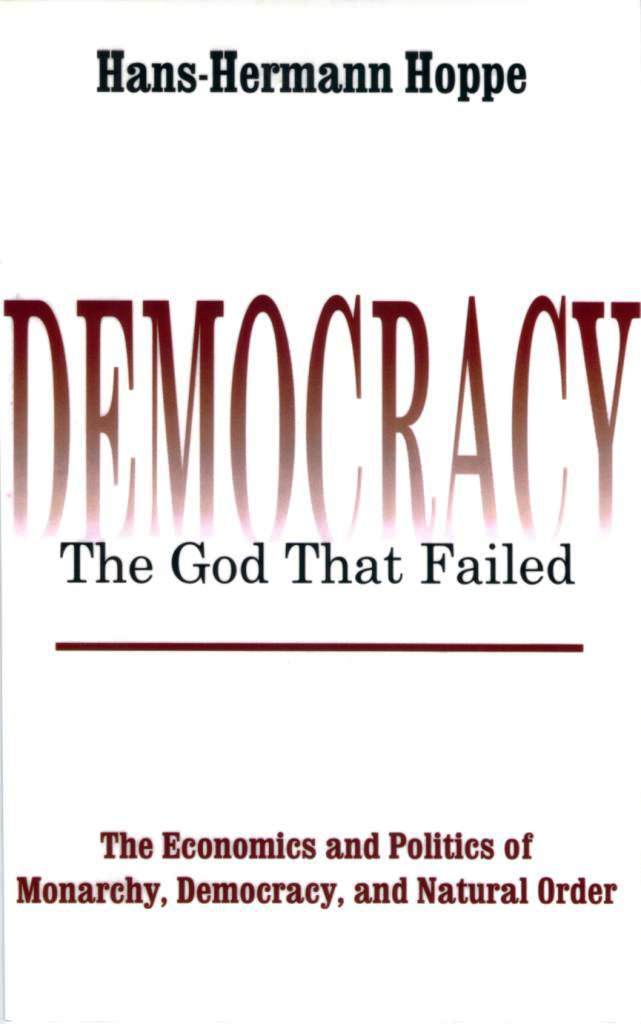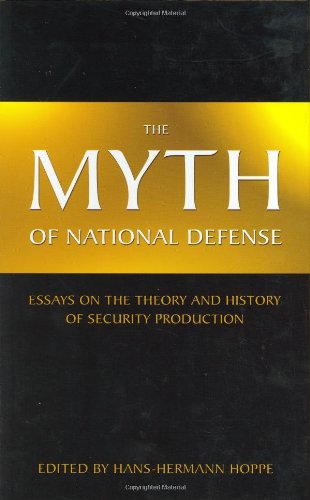 A new version of Professor Hoppe’s A Theory of Socialism and Capitalism has recently been published by Laissez Faire Books. Earlier editions of the book may be found here. The book is free in epub and kindle (mobi) format for members of the Laissez Faire Club (members also gain free access to dozens of other e-books in the members-only library). More information about the club.
A new version of Professor Hoppe’s A Theory of Socialism and Capitalism has recently been published by Laissez Faire Books. Earlier editions of the book may be found here. The book is free in epub and kindle (mobi) format for members of the Laissez Faire Club (members also gain free access to dozens of other e-books in the members-only library). More information about the club.
I wrote a Foreword, which may be found here. Jeffrey Tucker also wrote a useful Editorial Preface that draws attention to the insights in the book that the reader might otherwise miss.
Below is the email message sent to Laissez Faire Club Members by Jeff Tucker in announcing the publication of the book:
Jeffrey Tucker The usual model of politics that most everyone uses today makes no sense. Hans-Hermann Hoppe’s A Theory of Socialism and Capitalism utterly smashes intellectual conventions and makes a case for an alternative way of classifying political and economic systems.
This book was Hans-Hermann Hoppe’s first treatise in English and the one that put him on the map as a social thinker and economist to watch. This new edition includes a detailed analysis by one of his leading students and interpreters, N. Stephan Kinsella. Also, the editorial preface, written by yours truly, draws attention to the insights in the book that the reader might otherwise miss.
Hoppe argues that there are only two possible poles in economic affairs: socialism (violation of private property) and capitalism (respect for private property). All systems are combinations of those two types. The capitalist model he defines as pure protection of private property, free association, and exchange – no exceptions. All deviations from that ideal are species of socialism, with public ownership and interference with trade.
Within the structure of socialism, he distinguishes the left and right version. “Conservative”socialism favors high regulation, behavioral controls, protectionism, and nationalism. The “liberal” version tends more toward outright public ownership and redistribution. In addition, there is a technocratic version that intervenes based on expediency. The consequences of socialism vary based on their degree and kind, but they have similarities: high costs, resource waste, low growth, and economic stagnation.
This structure of the book is that of a comparative systems text, but it goes much further than that. What matters about this book most is the theory and the analytics that Hoppeuses to make the case. This is where we find the innovation. This is where the book shines. This is where the reader will find a more perfect form of a side of an argument that has been ongoing for hundreds if not thousands of years. The reason is Hoppe’s method. It is strictly logical, proceeding step-by-step through every thought, expanding and expanding relentlessly but never leaping from point-to-point in a way that skips or takes anything for granted.
It is through this method that Hoppe presents a thorough and compelling case for the existence and protection of private property, explaining in some detail the first condition of ownership: rivalrous use of physical resources.
His defense of self ownership is the first application of the philosophical rule against performative contradiction to issues of political economy. His case against technocratic regimes rests, implausibly, on an epistemological case for a special kind of cause and effect relationship that exists in human affairs over the natural sciences.
Even his understanding of Marxism is unique: he is careful to discard only the illogical and nonsensical parts while retaining the features that actually do make sense. It concludes with essays on the two most common objections to a fully privatized society.
This masterful book is the template for most of Hoppe’s contributions throughout his career, but here they are succinctly stated and very well organized.
[HHH]

















You must log in to post a comment. Log in now.